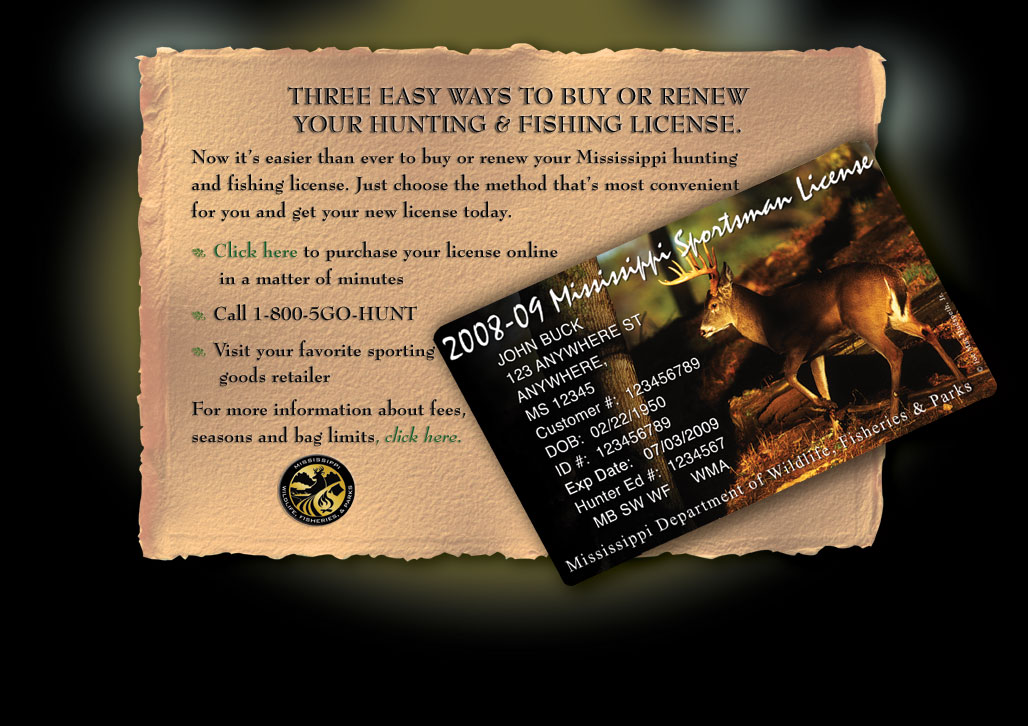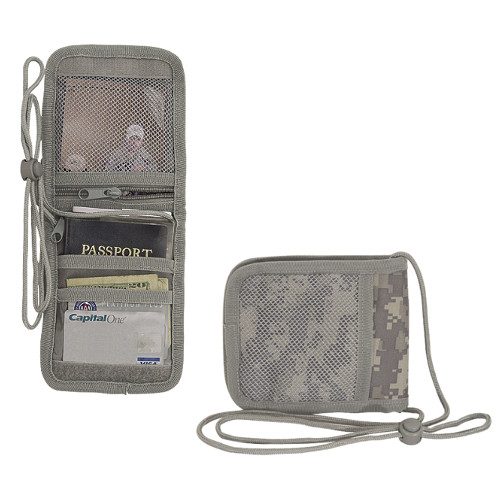Comprehensive Guide To Obtaining A Hunting License: Everything You Need To Know
Hunting license is a crucial document for anyone who wishes to participate in hunting activities legally. Whether you're an experienced hunter or a newcomer, understanding the requirements and processes involved in obtaining a hunting license is essential for a successful and lawful hunting experience. This article delves into the details of hunting licenses, their significance, and the steps you need to take to acquire one.
Hunting has been a part of human tradition for centuries, serving both as a means of sustenance and a recreational activity. However, to ensure the sustainability of wildlife populations and protect natural habitats, governments worldwide have implemented regulations that require hunters to obtain a hunting license. This license not only ensures compliance with legal standards but also promotes responsible hunting practices.
By the end of this guide, you will have a clear understanding of the importance of a hunting license, the steps required to obtain one, and the responsibilities that come with it. Let's dive into the details and explore everything you need to know about hunting licenses.
Read also:Saroo Brierley Wife Name A Comprehensive Look At The Life And Love Of An Inspirational Figure
Table of Contents
- What is a Hunting License?
- The Importance of a Hunting License
- Types of Hunting Licenses
- Requirements for Obtaining a Hunting License
- Steps to Obtain a Hunting License
- Cost of a Hunting License
- Renewal Process for Hunting Licenses
- Hunting License Laws and Regulations
- Benefits of Having a Hunting License
- Frequently Asked Questions
What is a Hunting License?
A hunting license is an official permit issued by a government authority that allows individuals to legally engage in hunting activities. This license is typically issued by state or provincial wildlife agencies and is designed to regulate hunting practices, protect wildlife populations, and ensure the safety of both hunters and non-hunters.
Hunting licenses come in various forms, depending on the type of game being hunted, the duration of the license, and the location of the hunting activity. They may also include additional permits for specific species or hunting methods.
Key Features of a Hunting License
- Legal authorization to hunt specific types of wildlife.
- Validity period, which can range from a single day to an entire season.
- Geographical restrictions, limiting hunting to specific areas.
- Requirements for hunter education and safety training.
The Importance of a Hunting License
Obtaining a hunting license is not just a legal requirement; it plays a vital role in conservation efforts and the management of wildlife resources. By regulating hunting activities, authorities can ensure the sustainable use of natural resources and protect endangered species.
Additionally, hunting licenses contribute to the funding of wildlife conservation programs through the fees collected. These funds are often used to support habitat restoration, research, and education initiatives that benefit both hunters and the environment.
Conservation Benefits
- Funding for wildlife management and habitat preservation.
- Regulation of hunting seasons to prevent overhunting.
- Protection of endangered species through restricted hunting quotas.
Types of Hunting Licenses
Hunting licenses vary based on factors such as the type of game, the duration of the license, and the hunter's residency status. Below are some common types of hunting licenses:
1. Resident vs. Non-Resident Licenses
Resident licenses are available to individuals who live within the state or province where they plan to hunt. Non-resident licenses are issued to those who live outside the jurisdiction but wish to hunt there. Non-resident licenses are often more expensive than resident licenses.
Read also:Claudine Barretto Education Unveiling The Journey Of A Multifaceted Filipina Icon
2. Big Game vs. Small Game Licenses
Big game licenses allow hunters to pursue larger animals such as deer, elk, and bear, while small game licenses are for hunting smaller animals like rabbits, squirrels, and birds.
3. Combination Licenses
Some states offer combination licenses that cover both big and small game, providing hunters with more flexibility in their hunting activities.
Requirements for Obtaining a Hunting License
Before applying for a hunting license, hunters must meet certain requirements to ensure they are prepared and qualified to participate in hunting activities safely and responsibly.
Age Requirements
- Most states require hunters to be at least 12 years old to obtain a hunting license.
- Some states offer youth hunting licenses for children under the age of 16.
Hunter Education
Many jurisdictions require hunters to complete a hunter education course before obtaining a license. These courses cover topics such as firearm safety, wildlife conservation, and hunting ethics.
Residency Proof
Applicants for resident hunting licenses must provide proof of residency, such as a driver's license or utility bill, to qualify for reduced fees and privileges.
Steps to Obtain a Hunting License
Acquiring a hunting license involves several steps, from completing education requirements to submitting an application. Follow these steps to ensure a smooth process:
Step 1: Complete Hunter Education
Enroll in and successfully complete a hunter education course approved by your state's wildlife agency.
Step 2: Gather Required Documents
- Proof of age and residency.
- Hunter education certification.
Step 3: Apply for the License
Submit your application through the appropriate channels, whether online, by mail, or in person at a licensed vendor.
Cost of a Hunting License
The cost of a hunting license varies depending on factors such as residency status, type of license, and location. On average, resident hunting licenses range from $20 to $50, while non-resident licenses can cost several hundred dollars.
Factors Affecting Cost
- Residency status.
- Type of game being hunted.
- Duration of the license.
Renewal Process for Hunting Licenses
Hunting licenses typically expire at the end of the hunting season or after a specified period. To continue hunting legally, hunters must renew their licenses annually or as required by local regulations.
Renewal Options
- Online renewal through the state wildlife agency's website.
- In-person renewal at authorized vendors or agency offices.
Hunting License Laws and Regulations
Hunting license laws vary by jurisdiction and are designed to ensure the safe and responsible practice of hunting. Hunters must familiarize themselves with local regulations to avoid penalties and ensure compliance.
Key Regulations
- Bag limits for specific species.
- Designated hunting seasons and times.
- Restrictions on hunting methods and equipment.
Benefits of Having a Hunting License
Obtaining a hunting license offers numerous benefits beyond the legal authorization to hunt. Hunters contribute to conservation efforts, enjoy increased access to hunting areas, and participate in a tradition that connects them with nature.
Environmental Benefits
- Support for wildlife conservation programs.
- Promotion of sustainable hunting practices.
Frequently Asked Questions
1. Can I hunt without a license?
No, hunting without a license is illegal and can result in fines, penalties, and the loss of hunting privileges.
2. How long does it take to get a hunting license?
The processing time for a hunting license application varies but typically takes 1-2 weeks. Online applications may be processed faster.
3. Are hunting licenses transferable?
No, hunting licenses are non-transferable and are valid only for the person to whom they are issued.
Conclusion
In summary, obtaining a hunting license is a critical step for anyone interested in participating in hunting activities. By understanding the requirements, processes, and responsibilities associated with hunting licenses, hunters can ensure they are compliant with legal standards and contribute to the conservation of wildlife resources.
We encourage you to share this article with fellow hunters and explore additional resources on our website for more information on hunting and wildlife conservation. Together, we can promote responsible hunting practices and protect our natural heritage for future generations.

